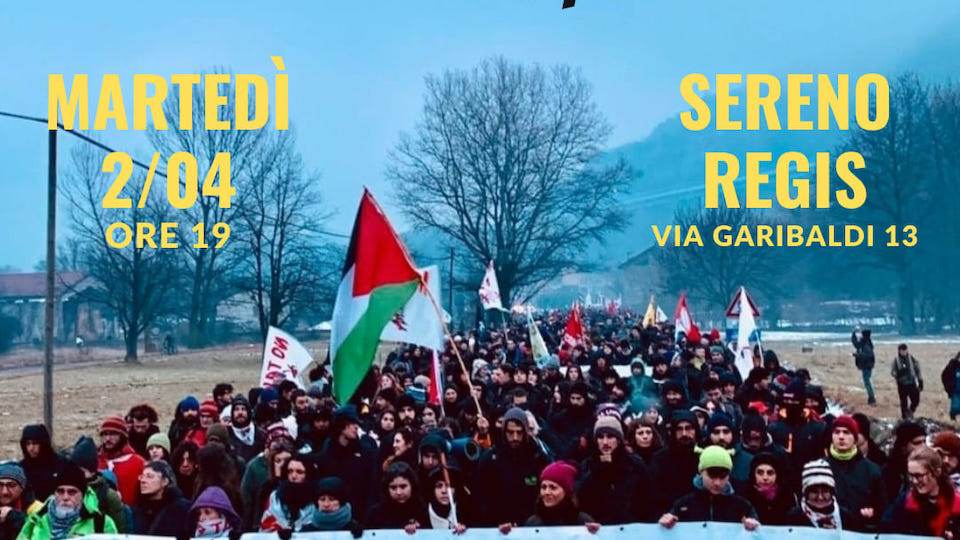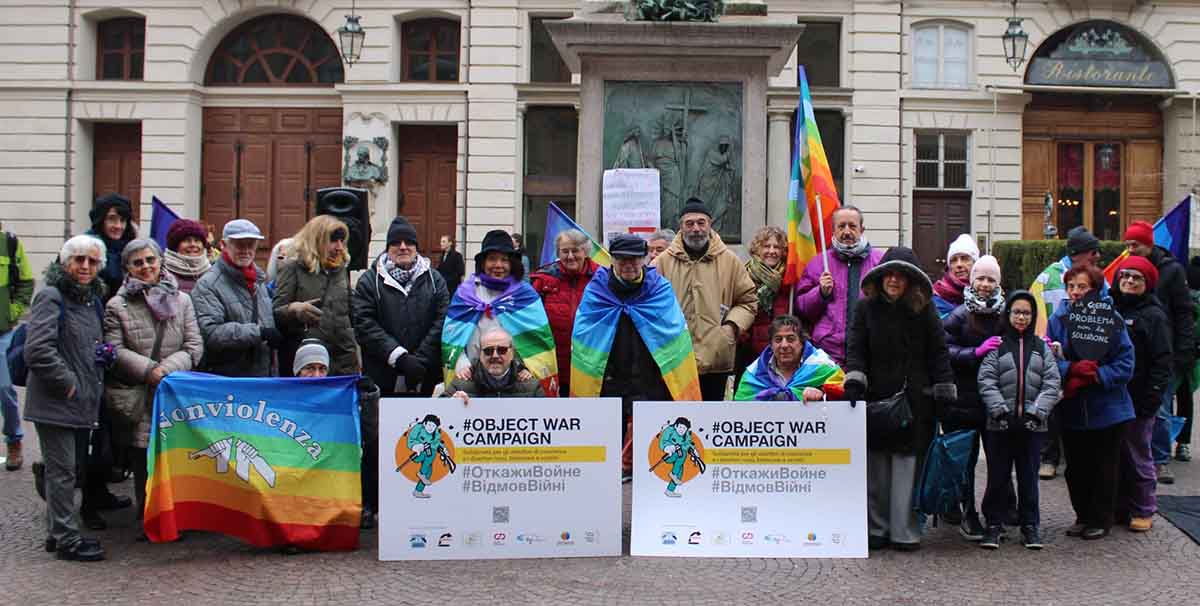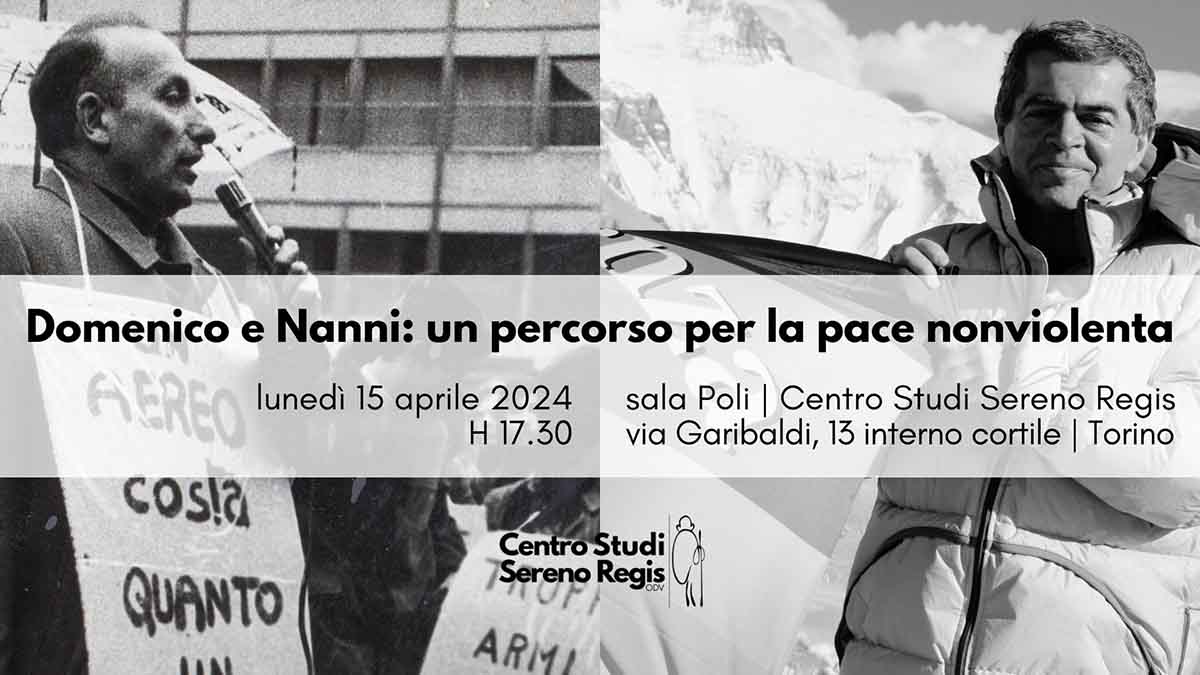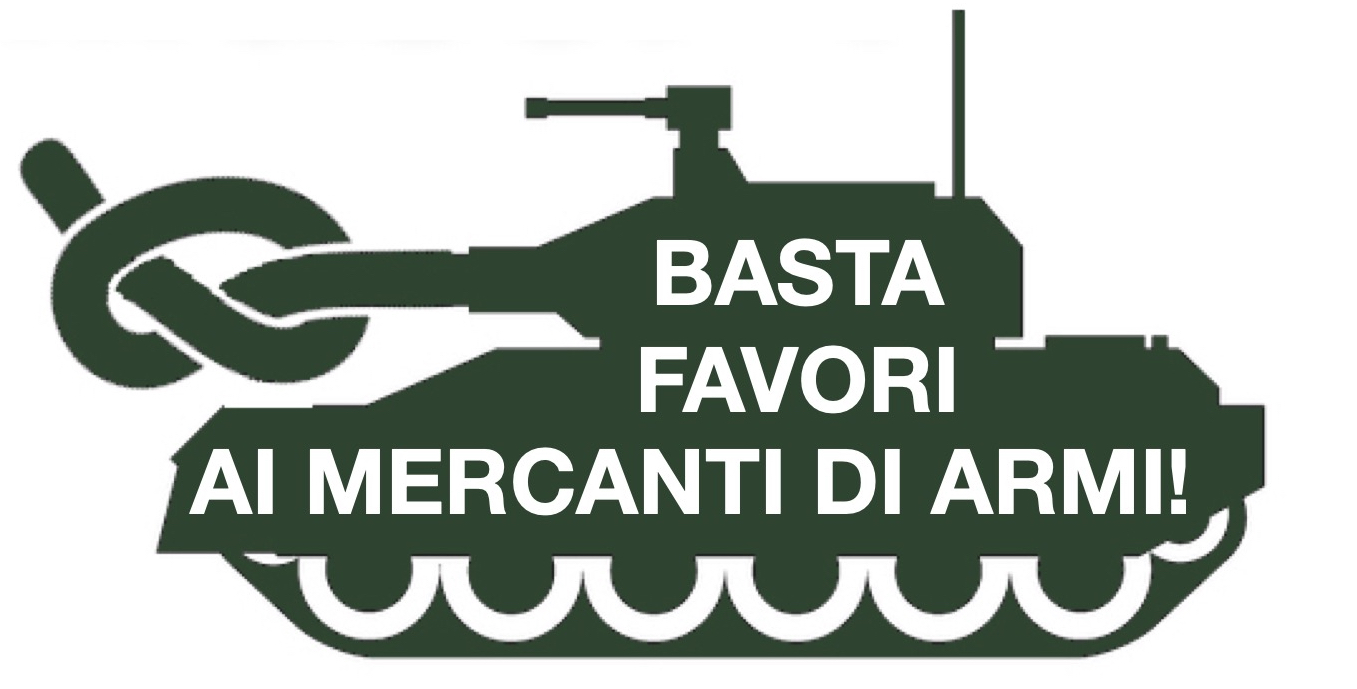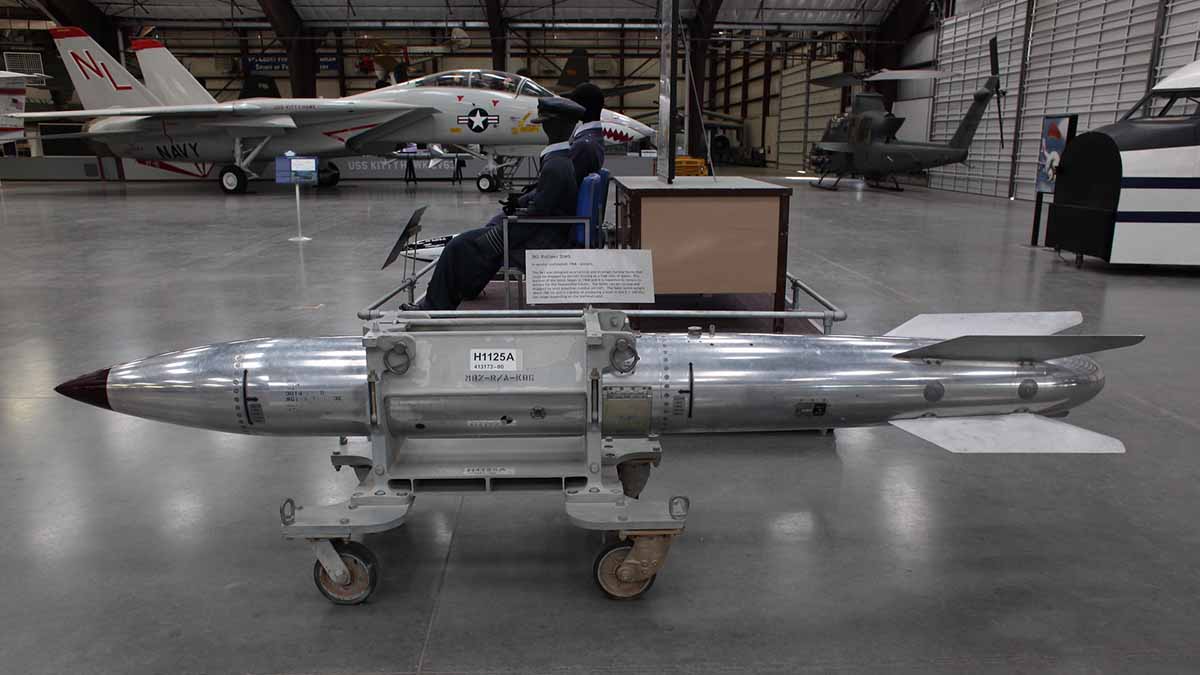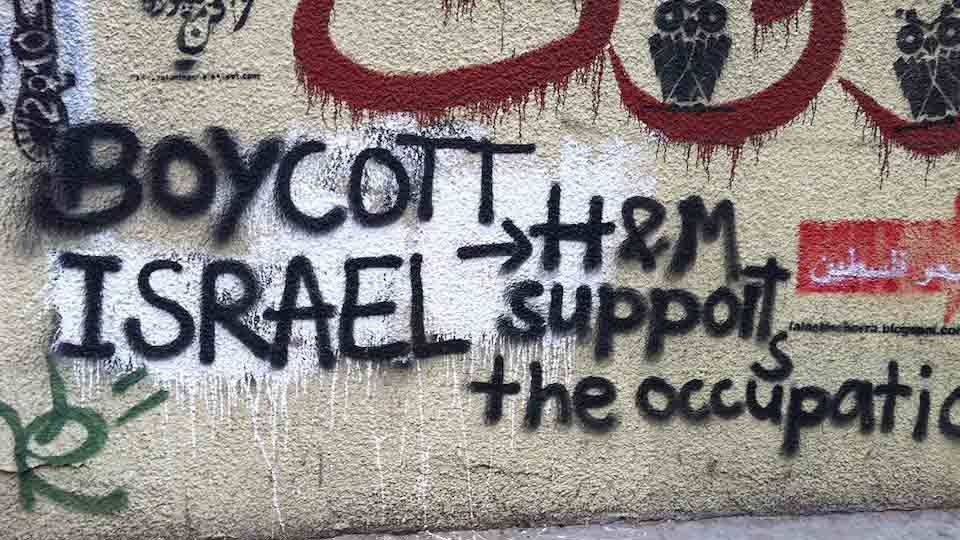Designation-Headquarters-Duration
1.1 It is constituted, in accordance with the Constitution Chart, the association called “Study Centre and Documentation on Problem on Participation, Development and Peace Domenico Sereno Regis” in abbreviated form “Study Centre Sereno Regis”, being Voluntary Organization in accordance with the law 11th August 1991 n.266, and therefor considered ONLUS in accordance with the Article 10, comma 8, of the Legislative Decree 4th December 1997 n.460.
1.2 The association has its headquarters in Turin at the address that appears on the relative deliberation of the Council of Administration; the address may be varied with future deliberation of the same Council, even though the order to transfer the headquarter in a different city remains an absolute competence of the Assembly of members.
The deliberation of transfer of the headquarter may be anyway communicated within 60 days from the date of transfer, in accordance with the article 5, last Comma, of the Law Regione Piemonte 29th August 1994, n.38.
1.3 The duration of the association is not predetermined and it could be dissolved with an allowance of the extraordinary Assembly with the majority determined in the Article 11 of this Statute.
Article 2
Purpose and activities of the Association
2.1 The association is a non-party political, non-denominational, a democratic no-profit structure.
Inspired by the principle of non-violence in social solidarity it sets the goal to:
a) promote and divulgate studies, form and educate about the thematics of non-violence, democratic participation, human and civil rights and duties, of human dignity and of any living thing, of sustainability, of disarmament, of peace;
b) elaborate problems related to environmental sustainability non-violent economy and management of energetic resources;
c) acquire and share knowledge skills oriented towards the non-violent transformation of conflicts;
d) acknowledge and overcome different forms explicit or not of direct, structure and cultural violent;
e) investigate and favour the artistic creativity and the aesthetic critic, according to the research of peace and violent;
f) tutelary, promote and evaluate the goods of artistic and historical interest, included archival material and book collections.
2.2 For the realisation of the goal discuss about (2.1) and with the aim in favour of the all collectivity, the Association proposes to:
a) find and gather any sort of materials: publications, registrations, films, photos, fliers and anything which is useful to the documentations about the questions mentioned above. This material will be made available to the citizens, organs of information, social and labour organisation and base movements.
b) promote editorial activities and any form of communication (for example: papery, informatics, telematics, multimedial, filmic, photographic, television program, radiophonic, illustrative, artistic in genre, also with the auxiliary of on-line nets and management of internet sites);
c) organise meetings, seminaries, training and education courses to peace, solidarity and non-violent resolution of conflicts;
d) do training activities thought for the young in preparation to interventions of prevention, interposition and reconciliation to be actuated in situation of exclusion, discrimination and violent, as well in case of armed conflict in international scale (e.g. national civil service, Peace Civil Bodies);
e) do information, divulgation and research activities applied to the themes of sustainability and of alimentary sovereignty, collaborating with similar organisation elaborating projects of research and education promoting Eco sustainable ways of living;
f) form and encourage artistic skills and aesthetic taste related to non-violence researching for peace, spirituality, education (e.g. trough shows, debates, projections, workshops, exhibitions, courses, concerts, seminaries)
2.3 The activities listed above are actuated by the Association mostly inside the Region Piedmont and trough the performances made by its own members in a personal, spontaneous and no-profit way.
2.4 The Association can hire employed workers or use performance of independent work exclusively in the necessary limit to their regular functioning or necessary to qualify or make more specialized the activities made by them.
Article 3
Volunteers’ activity
3.1 The activity of the volunteers cannot be reattributed in any way, not even by the beneficiaries. Only the costs effectively sustain for the attended activity can be paid back to the volunteers by the Association, only after the documentation of the previous within the limits established in advance by the assembly.
3.2 The quality of the volunteer is incompatible with any form of subordinated or autonomous work and with the any other relation of patrimonial with the organisation which he is a part of.
Article 4
Estate and economical resources
4.1 The estate of the Association during its own duration is not divisible and it is made up of movable and immovable properties, credits, liquidities, bank availability that usually are or will be entitlement of the Association.
4.2 The Association gains the economical resources for its functioning and carrying out of its own activities from:
a) Associative shares and contribution of the members;
b) Contributions of privates both physical and juridical people;
c) Contribution of the State, corporation or public institutions to sustain specific and documented activities or projects;
d) Contributions of international organisms;
e) Testamentary donations and legacies;
f) Repayments derived by conventions;
g) Income derived from secondary commercial and productive activities.
4.3 The social exercise of the Association begins events respectively on the firs January in the 31st December every year. At the end of each exercise the Council of Administration compiles the balance (final and preventive) and subjects it to the approval of the assembly of members within the month of April. The final balance is deposited by the quarter of the Association within 15 days before the Assembly and can be consulted by any member.
4.4 The goods of property of the Association and their income may be the exclusively destined to the achievement of the finalities stated by the Statute.
It is an obligation to reinvest the eventual surplus of management in favour of the institutional activities expected according to the Statute.
4.5 It is forbidden to part among the members, even in indirect form, the eventual income derived from the activity of the Association.
Article 5
Purchase of the quality of associate
5.1 The number of associate is unlimited
5.2 The bond to the Association is to undetermined time
5.3 All the ones that share the aims and the finalities of the Association and work hard spontaneously for their fulfilment can be part of the association, in addition to the funder associates.
5.4 The admission of a new associate deliberated by the Council of Administration, is subordinated to the presentation of specific written questions from the interested which declares himself with to work hard, to respect the Statuto and to observe the eventual rules and deliberations adopted from the Association’s organs.
5.5 Adverse the eventual rejection the instance which must be always motivated and communicated in writing to the requester, it is admitted appeal to the associate’s Assembly.
5.6 The Appeal to the associate’s Assembly is admitted within 15 days from the delivery of the above-mentioned communication.
5.7 The Council of Administration takes care of the annotation of the new relevant in the associate’s book after that they will have deposited the established quote from the Assembly. The quality of associate is not transmissible.
Article 6
Loss of the quality of Associate
6.1 The quality of associate can be lost because of:
a) The annulment that must be communicated in writing to the Council of Administration
b) Exclusion, in case the associate have held a behaviour a seriously incompatible with the aims of the Association.
c) Missed payment of the annual associative quote after two months from the eventual written solicitude.
d) Death.
6.2 The exclusion of the associates is deliberated from the Assembly, by proposal of the Council of Administration. Anyway, before proceeding to the exclusion of an associate, the debts, which he has, must be contested to him, allowing to him authority and reply.
6.3 The loss of the Associate’s nominee entails automatic decadence from any charge, nominee or duty covered in the Association’s sphere.
6.4 In every case of dissolution of the associative relation merely to an associate, he or his heirs don’t have the right to the refund of the annually deposited quotes, and don’t have any right on the patrimony of the Association too.
Article 7
Rights and duties of the Associates
7.1 Every Associate has the same rights and the same musts of participation to the Association’s life and its activity. For the exercise of the social rights, the associates must be signed in the associates’ book.
In a specific way, the associates have right to:
• Participate to every activity promoted from the Association, receiving from them information and having the authority to verify in the limits established by the normative in force, from the present Statuto and from the eventual rules of the Association;
• Nominee social organs and to be nominee in the same ones;
• Express the own vote in order to the approval of the deliberation of associative organs:
Associates who do volunteering have to be assured to the organization against injuries and illnesses connected to the activity, as well as the civil responsibility to others, inasmuch these will be predicted from the specific legislation.
7.2 The associates are obliged to:
• Observe the Statuto, the eventual internal rules and the deliberations that were taken by the social organs;
• Maintain always a worthy behaviour in the confronts and inside the Association;
Deposit in the predicted terms the associative quote annually established by the Associate’s Assembly. The associative quote is not transmissible and in no cases could be.
Article 8
Association organs
8.1 They are organs of the Association:
• The Shareholders’ Meeting;
• The Board of Directors;
• President;
• The College of Probivirs, if appointed;
• The Technical Committees, when set up.
8.2 All the associative charges are covered in free title
Article 9
Associates’ Assembly
9.1 The Assembly of Shareholders, the sovereign body of the Association, regulates its activity and is composed of all members.
9.2 They have the right to intervene and to express their vote in the Shareholders’ Meeting, all members are registered in the book of shareholders.
9.3 Each member has a single vote and may be represented by another member, giving the same written delegation. No member can represent more than two associates.
9.4 The Shareholders’ Meeting shall be presided over by the Chairman of the Board of Directors or, failing that, by the Vice-Chairman or the Senior Board Member. The Chairman of the Assembly shall be assisted by a Secretary appointed by the members present at the meeting with the majority vote (calculated for heads).
9.5 The Assembly shall meet at the convening of the Chairman. It must also be convened when the Board of Directors discerns the necessity or when it is made a request motivated by at least 1/10 (one tenth) of the shareholders with voting rights.
9.6 The notice of convening is forwarded in writing with 15 (fifteen) days in advance and must state the arguments on the agenda, the place, date and time of the first convocation and of the second call. The latter must be at least 24 (twenty-four) hours after the first call.
9.7 In the event of a formal convocation or failure to observe the notice period, the meetings to which all members participate in person or by delegation are equally valid.
9.8 The resolutions adopted by the Assembly bind all members, whether absent or dissenting. The deliberations and deliberations of the Assembly are contained in a minutes drawn up by the Secretary and signed by the Chairman and the Chairman.
9.9 The Assembly can be ordinary or extraordinary. It is extraordinary that the Assembly convened for the amendment of the By-Laws, for the transfer of the registered office to a different municipality or for the dissolution of the Association. It is ordinary in all other cases.
Article 10
Ordinary Assembly of Members
10.1 The ordinary Assembly is regularly made up, in first convocation, if the majority of the members that have the right to vote is present and, in secondary convocation, whatever is the number of the intervened members or representatives.
In deliberations to approve the balance sheet and in those that regard their responsibility, the administrators do not have the right to vote.
10.2 The Assembly’s deliberations are effectively undertaken when the majority of present members or representatives approves them.
10.3 The ordinary Assembly must be summoned at least once a year for the approval of the balance sheet (final and estimate), within four months from the accounting period’s closure.
10.4 The ordinary Assembly:
• approves the estimate balance, the final balance and the report of the carried out activity;
• debates and approves the activity’s programs;
• nominates the members that will compose the Administration Council, approving pre-emptively its number;
• ratifies the substitution of the Administration Council’s members who are resigning, decayed or deceased, deliberated by the Administration Council obtaining from the ranking of the non-elected;
• approves the eventual inner regulations and their variations;
• sanctions on the annual associative cost;
• sanctions on the exclusion of members;
• sanctions on every other objects undergone to its exam by the Administration Council;
• delegates the Administration Council to carry out all necessary actions in order to fulfill the goals defined by the association itself;
• defines the expenses’ limit and approves the maximum refunds expected for the members who volunteer. These expenses must be conveniently recorded;
• approves the amount of the payment for the eventual paid performances that result necessary for the purpose of the regular operation of the Association’s activity;
10.5 The minutes of the assembly deliberations must be published trough billposting in the social center and transcribe it in the minute book of the meetings and deliberations of the Assembly, edited by the Vice-president.
Article 11
Special Assembly of members
11.1 The convocation of the special Assembly is made according to the previous article 9.
11.2 The special Assembly of members approves eventual changes to the current statute with the presence, in their own right or commissioned, of three quarters of the members with a deliberate decision on the majority of the presents.
11.3 To deliberate the dismissal of the Association and the donation of the heritage, it is required a favorable of at least three quarters of the members.
Article 12
Administration Council
12.1 The Administration Council is composed by a minimum of three to a maximum of seven Counselors who are in charge for 2 years of term and expires on the date of the summoned assembly for the approval of the final balance sheet related to the secondary practice of the position.
The suspension of the Counselors for the due date of the term has an effect from the moment in which the new administrative organ is reconstructed.
The Counselors are reselectable for several terms.
12.2 The Assembly that proceeds to the election, determines preliminarily the number of Counselors within it, electing the Administration Council
12.3 The Administration Council elects among its members, on an absolute majority of votes, the President, the Vice-president, the Treasurer and the Secretary.
12.4 The Treasurer takes care of the collection of the entries and the payment of the expenses of the Association; takes care of the maintenance of the cashbook and of all the documents that specifically regard the service that was given to him by the Administration Council.
12.5 In case of death, reassignment or exclusion of Counselors before the due date of their term, the Administration Council provides to their substitution, using the list of non-elected: the substitution has to be ratified by the next ordinary Assembly and it lasts until the due day of the mandate of the Administration Council.
12.6 In case, because of resignation or other causes, the majority of the Counselors would be lacking, the entire Council stops and the Counselors staying in charge must summon, without doubt, the Assembly of members, in order to provide the election of the new administrative organ. Until that moment, the remaining Counselors in charge keep the power of fulfilling only the acts of an ordinary administration.
12.7 It can be refund, to the Counselors, the expenses effectively supported and reported relative to the development of the charges and the activities on behalf of the Association, within the maximum limit established by the Assembly of the members.
12.8 The Administration Council is responsible to the Assembly of the operative management, actuates the terms and the decisions of the Assembly and it is appointed of the widest powers for the ordinary and extraordinary management of the Association, except those which the low or the current statute give to the Assembly. Especially it unrolls the following activities:
• actuates all the deliberations of the Assembly;
• edits and presents to the Assembly the preventive balance, the final balance and the relationship about the unrolled activity;
• deliberates on the questions of new adhesions;
• submits to the Assembly the proposals of exclusion of members;
• submits to the approval of the Assembly the sums of the social annual costs for the members;
• can establish the technical committees, in which members and/or master also not members take part, for the definition and the concrete realization of specific programs and projects;
12.9 The Administration Council is presided by the President or, in case of his absence, by the Vice-president or, in his absence too, by the oldest Counselor.
12.10 The Administration Council is summoned by the President at least every 6 months and all times in which there is something to deliberate on, or when two components request it.
12.11 The summoning is forwarded with 7 days of advance and must specify the topics of the day, the place, the date and the hour of the meeting. At fault of a formal summoning or a missed observance of the terms of advanced notice, the meeting in which the members of the Administration Council are equally valid.
12.12 The minutes of the meeting of the Administration Council, written by the Secretary and undersigned by himself and by who presided over the meeting, are edited in the minutes’ book of the meetings and deliberations of the Administration Council.
12.13 For the validity of the deliberations of the Administration Council an effective presence of the majority of the members is required. The deliberations are effectively implemented with a favorable vote of the majority of the presents; in case of parity of votes, the deliberation is considered as not approved.
Article 13
The President
13.1 The President, elected by the Administration Council, lasts in charge for two terms of office and is re-eligible.
13.2 The President has the legal representation of the Association in front of a third party and in trial; takes care of the fulfillment of the deliberations of the Administration Council; oversees all the activities of the Association; convenes and presides the Administration Council, whose actions are guaranteed by him in front of the Assembly; convenes and presides the Assembly of the members.
13.3 In case of absence or hindrance of the President, his functions concern the Vice-president or, in absence of him too, they will concern the oldest member of the Administration Council.
13.4 The President, in case of urgency, is up to the powers of the Administration Council and adopts the necessary measures, summoning contextually the Council for their approval.
Article 14
The Arbitrators’ College
14.1 If it considers it appropriate, the Assembly of the members can establish the Arbitrators’ College, composed by three members to choose among the members who do not take part to the Administration Council.
The Arbitrators’ College remains in charge for two terms of office and expires on the date of the summoned assembly for the approval of the final balance sheet related to the secondary practice of the position.
The Arbitrators are re-eligible.
14.2 the Arbitrators’ College has the duty to settle, on their own initiative or upon request of a member or an organ of the Association, every and any controversy among the members, between the members and the Association or its organs, as well as among the organs of the Association, choosing according to equity and to which college of irregular arbitrators, declaring in a final way decisions regarding it and doing every related preliminary activity.
If it considers it appropriate, the Arbitrators’ College proposes to the Administration Council the disciplinary measures to prefer.
14.3 The Arbitrators’ College elects within itself a President, who summons and presides the actions of the College. In his absence, the College is presided by the oldest member.
14.4 The Arbitrators’ College meets up every time its President considers it appropriate, but also if at least two members of the Administration Council request it, or five associated or a interested member at dispute to settle himself.
14.5 The deliberations of the Arbitrators’ College, are effectively adopted with the favorable vote of the majority of its components.
The minutes of the deliberation must be transcribed in the meetings and deliberations’ book of the Arbitrators’ College.
Article 15
Technical committee
15.1 Regarding the activities approved by the Assembly of members, the Council of ADMI ISTRATION HAS the power to create technical committees in which members or non-member experts which have to cure the definition and the concrete realization of specific programs and projects, i.e. consultative functions regarding projects that the Association want to promote.
15.2 The council of administration establishes the field of actions in ways of operation of the single committees and nominates its coordinator
Article 16
Dissolution
16.1 The extraordinary Assembly can agree on the dissolution of the Association with the majority mentioned in the article 11.3
16.2 In case of dissolution the Assembly, with the here above mentioned majority, nominates one or more liquidators and defines the liquidation formality of social patrimony and its devolution.
16.3 In case of dissolution, end therefor extinction of the Association the remaining goods after be extinguishment after the liquidation are given up to other identical or similar voluntary organizations.
Article 17
Social books
17.1 The Association has to keep the following books:
a) The members’ book
b) The assembly meetings and deliberations’ book
c) The Council of administration meetings and deliberations’ book
d) The district of Probiviri meetings and deliberations’ book if nominates
The books listed in a), b) and c) comma (3) may be cured by the administrative organ that takes care of its updating; the book listed in d) may be cured (4) by the district of Probiviri
17.2 The social books can be subjected to authentication in accordance with the Article 2215 of the Civil Code, in case it is considered necessary by the Administrative Organ.
Article18
Postponement
18.1 For everything which is not expressively contemplated in this Statute the regulations of the Civil code, of the national Law 266/1991 and regional and provincial disposition are affective.

